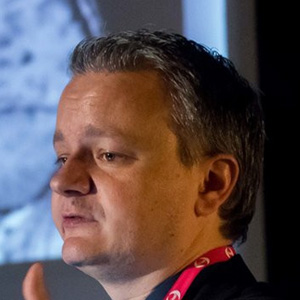Thursday, September 12, 2019

Prof. Dr. Stefan Rampp
Department of Neurosurgery, University Hospital Halle (Saale), Germany
Title
From dipoles to connectivity: MEG in epilepsy surgery
PD Dr. med. Stefan Rampp studied medicine at the University Erlangen-Nürnberg, Germany, where he graduated in 2004. He completed his doctoral thesis in 2006. From 2004 to 2014, he worked at the Epilepsy Center, Department of Neurology and at the Department of Neurosurgery, University Hospital Erlangen, Germany since 2015.
In 2006, he also joined the Department of Neurosurgery, University Hospital Halle (Saale), Germany. In May 2016, he completed his habilitation thesis in experimental neurosurgery. He is currently the chair of the MEG lab of the University Hospital Erlangen, Germany.
His research includes diverse topics, such as MEG, surface and invasive EEG, as well as MRI analysis and postprocessing for epileptic focus localization, functional mapping and neurocognitive research. Further areas of interest are intraoperative monitoring, biosignal analysis and software development.
Friday September 13, 2019

Tony Wilson, PhD
Scientific Director – Centre for Magnetoencephalography (MEG)
Nebraska Medical Center, Omaha NE
Title
Neurophysiological Markers of Aging and Cognitive Decline
Dr. Tony W. Wilson completed his Ph.D. in cognitive neuroscience at the University of Minnesota as a NICHD predoctoral trainee under the direction of Dr. Apostolos Georgopoulos, and a NIMH postdoctoral fellowship in developmental cognitive neuroscience at the University of Colorado Health Sciences Center under the direction of Dr. Donald Rojas.
After training, Dr. Wilson became the founding director of the Center for Magnetoencephalography (MEG) at the University of Nebraska Medical Center (UNMC), which has grown to be one the most active MEG sites in the world in terms of peer-reviewed publications and federal funding. He is currently a tenured associate professor at UNMC, and the director of their MEG and MRI research centres, as well as the dynamic imaging of cognition and neuromodulation (DICON) laboratory.
Dr. Wilson’s research program uses multimodal neuroimaging to investigate how aging, HIV, cannabis and/or alcohol use, and other health factors affect cognitive and brain function independently and interactively. In particular, his laboratory focuses on the oscillatory neural dynamics of attention and motor control, and how these dynamics predict cognitive performance in real time. In total, Dr. Wilson has published over 100 peer-reviewed manuscripts in top journals such as Brain, Biological Psychiatry, Cerebral Cortex, Neurology, Diabetes, NeuroImage, and many others, and currently serves as the PI or Co-PI on eight R01-equivalent awards, as well as multiple smaller NIH awards.
Saturday September 14, 2019

Dr. Peter J. Uhlhaas
Clinical Psychologist
Institute of Neuroscience and Psychology
University of Glasgow, Scotland UK
Title
The application of MEG to Understand Schizophrenia: A Translational and Developmental Perspective
Professor Peter Uhlhaas obtained a BSc and PhD in Psychology from the University of Stirling, Scotland. He was a visiting researcher at Weill Medical College, Cornell University, New York (2001-2002), before joining the Department of Neurophysiology (Head: Prof. Wolf Singer), Max-Planck Institute (MPI) for Brain Research in Frankfurt, Germany.
At the MPI, he became a group leader in 2006, investigating the neurophysiology of cognitive dysfunctions in schizophrenia. Peter joined the Institute of Neuroscience and Psychology, University of Glasgow, in 2012 where he is a principal investigator at the Centre for Cognitive Neuroimaging.
He has published 75 articles in internationally high-ranking journals (Brain, eLife, Nature Rev Neuroscience, Neuron, PNAS, J Neuroscience). He is current research focuses on the application of MEG towards identifying circuit dysfunctions and biomarkers in emerging psychosis. His work is supported by the Medical Research Council and Wellcome Trust.
